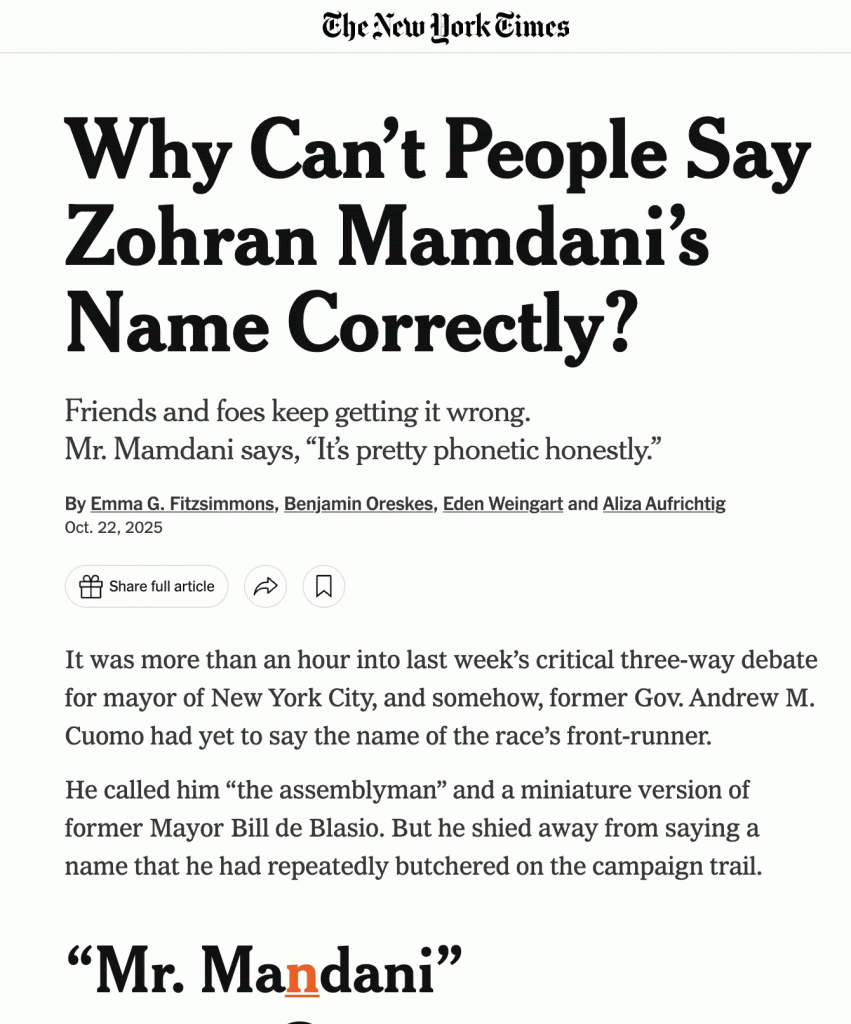Of the tens of thousands of photos I have seen, I think about this one, taken by Robert Capa during the Spanish Civil War, the most: Loyalist Militiaman at the Moment of Death.
It’s the title that gets me. There is something so binary about the moment of death.

More happily, I think about the moment of birth too, especially when I drive by the hospital where my kids were born. They weren’t in the world and suddenly they were.

Each time a brand (or an issue, idea, argument, concept) enters someone’s consciousness, it’s a binary moment. The brand didn’t exist for a person, and then it did.
And like childbirth, it’s hard. Of course, I only know this indirectly (about childbirth). In one of my finest husband moments, at the exact time Kristin was on a top floor of that hospital (after 24 hours of labor and still being only two centimeters dilated) saying “give me a fucking epidural” I was across the street in a cafe saying “can I have a lowfat latte, please.”
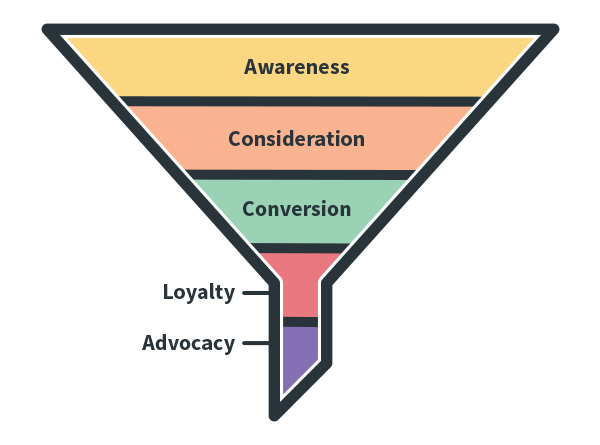
When clients ask BKW to help their unknown brands become known, we ask them to try remember the moment a brand—any brand—became known to them. It’s an important exercise for two reasons.
- There is almost always a massive disconnect between how much the client’s brand is known to the client versus almost everybody else. Clients see their brands perhaps 100 times a day…. it’s built into every email they send, it’s in their conversations, perhaps their Zoom backgrounds—and crucially, it’s wedged in their psyche. Their binary moment with their brand happened a long time ago.
- Clients very often grossly underestimate how hard, expensive and time-consuming it is, to birth their brand in the minds of a critical mass of customers. They’re going to want a lot of epidurals along the way.
It’s also a difficult exercise. It’s not easy to remember the moment a brand entered your head. Since this very thing just happened to me a couple of weeks ago, and it’s fresh in my mind, I want to document it here. It’s useful for me. And I think it will be useful for you.
But first, please take this little survey.
Most likely you listed brands like Netflix, Hulu, HBO Max, and Disney Plus. (I’ll post the results of the survey soon.)
You very likely didn’t include MHz Choice.
A couple of weeks ago I’d never heard of MHz Choice. It just didn’t exist for me. They do have a history, of course—now that I’m aware of them I did some reading—but I was unaware.
Now I am aware. Here are some of the things they did to make this happen. None was easy. Not all were in their control.
Hard Thing #1: Product
You need a product that is relevant (the jargon you hear a lot is product-market fit). MHz’s product is content—TV shows from around the world. They don’t make the shows, but they need to source stuff that customers like. In my case the show is the French cop/robber/lawyer show Engrenages (it’s called Spiral in the US).

Hard Thing #2: Promotion
I’d totally forgotten about this show. I remember loving it. Then I saw this recently. I didn’t really notice MHz Choice in the headline but I did go searching for the show.
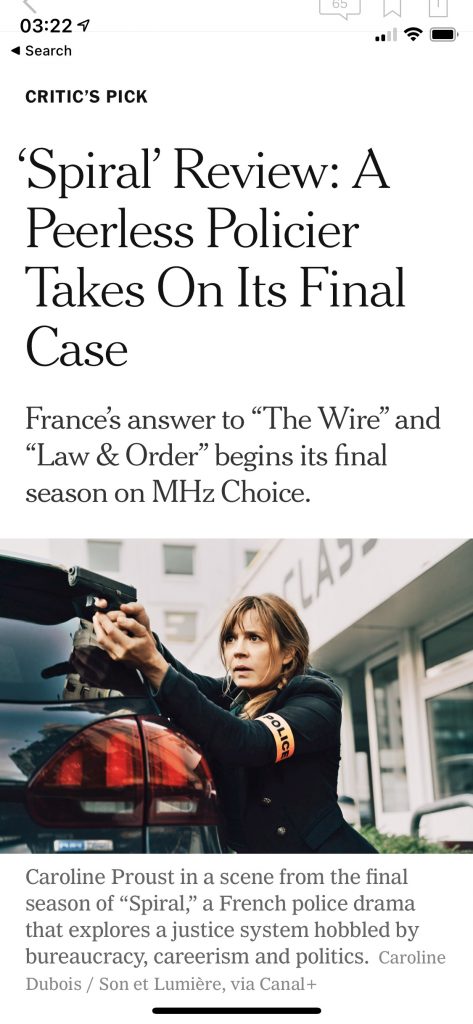
In a grave error that has destroyed any personal productivity on my part, I went back to Season 1, Episode 1 on Amazon Prime Video. I’m now in Season 7, which leads me to MHz Choice and Hard Thing #3.
Hard Thing #3: Distribution AKA Location, Location, Location
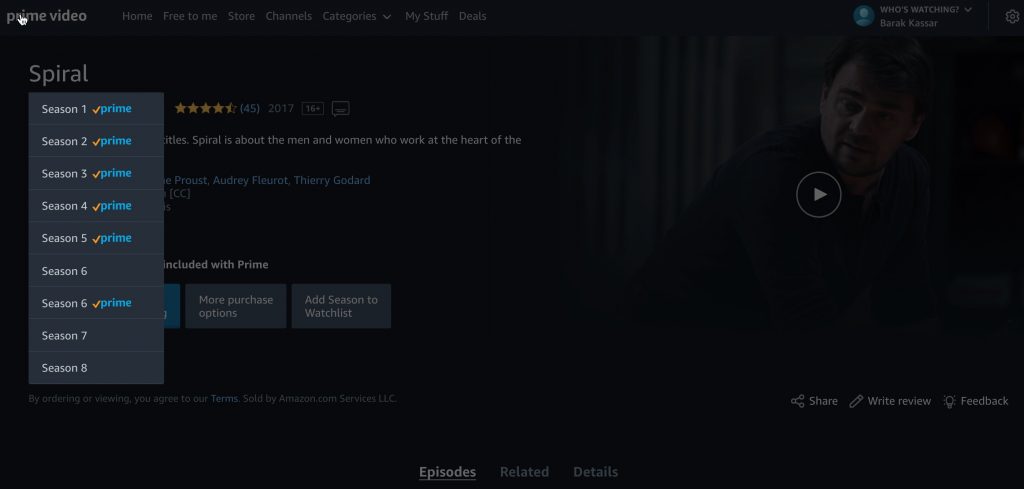
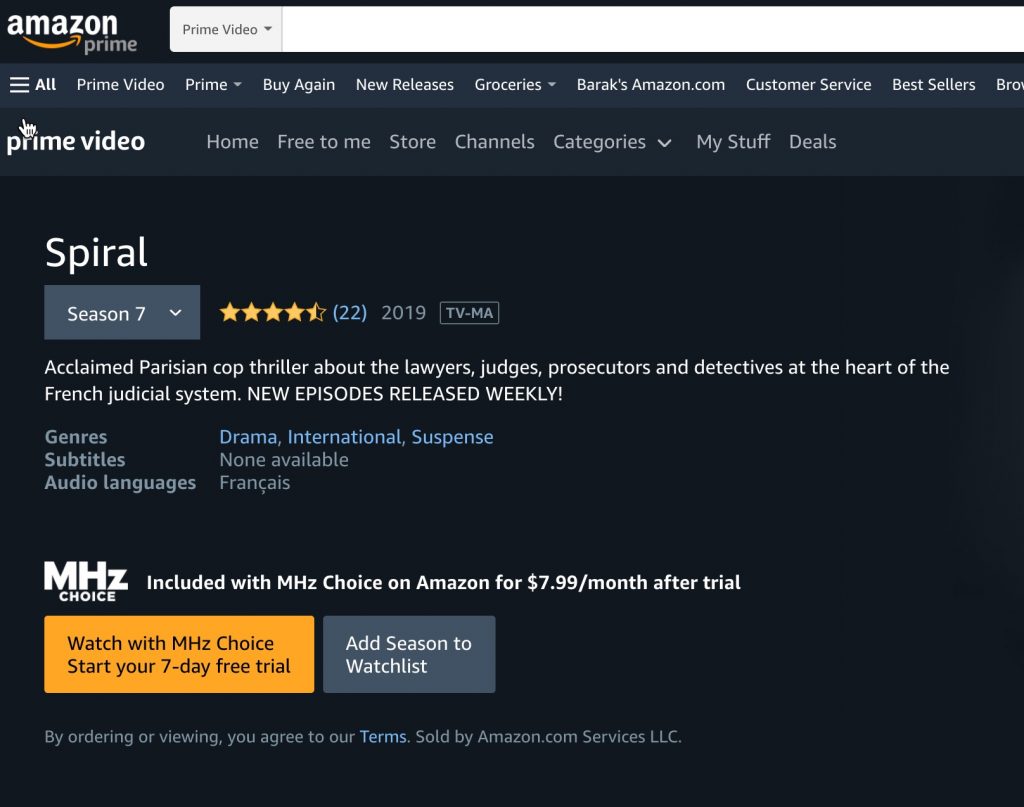
Seasons 7 and 8 require a subscription to MHz Choice. If I wasn’t super committed by this point—and the MHz option to watch was not shown to me so elegantly via MHz’s integration into Amazon—this might have been it for me and the show.
Now in an extremely unusual moment of Amazon user experience imperfection, when I went to subscribe on my phone (I move between laptop and phone kinda willy nilly and the moment I actually wanted to subscribe I happened to be on my phone) I got this:
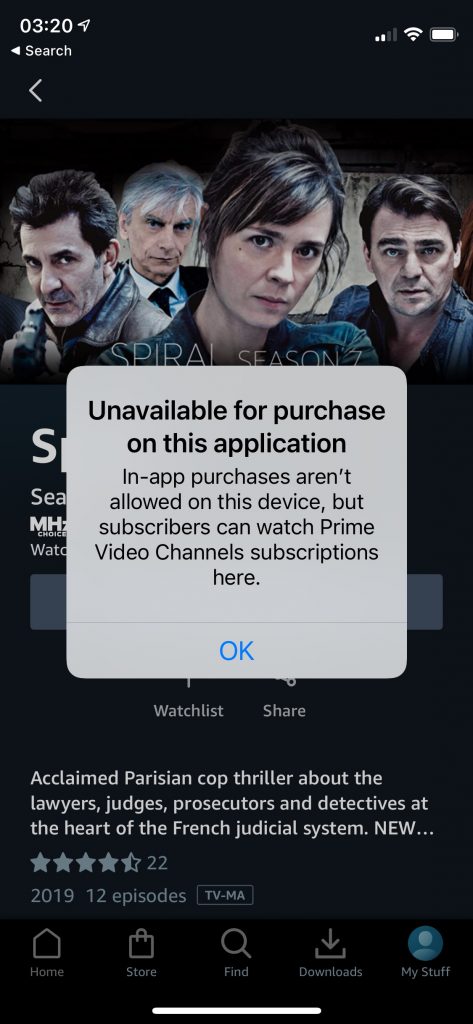
Lucky I was committed/hooked. Because stuff like this is usually an e-commerce destroyer. You need to get people at the moment they want to act. Or at least get their info so you can remind them later.
I bailed on Amazon and went to MHz. And subscribed via Apple (sorry Amazon).
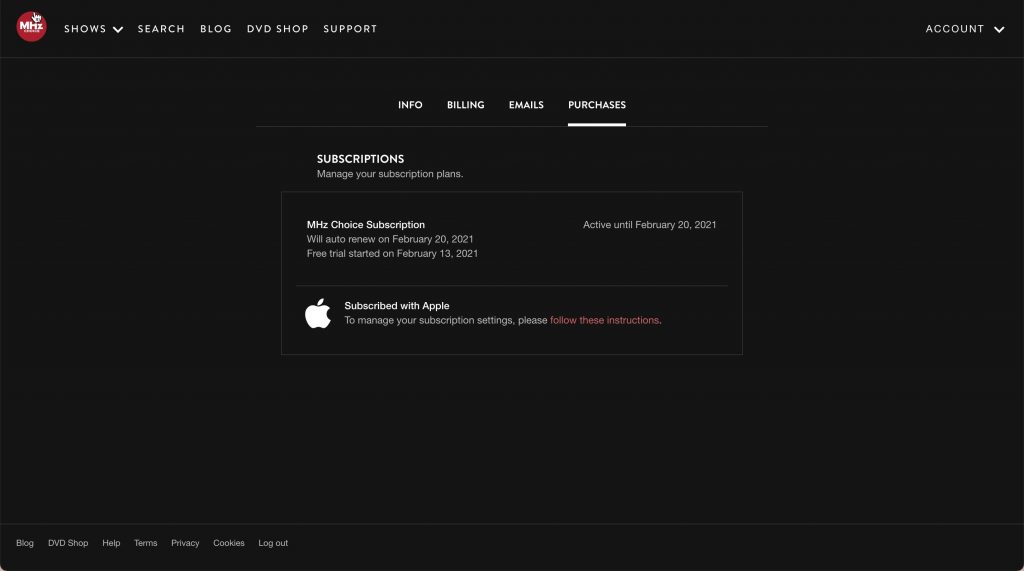
This highlights an important reality of digital marketing. The traditional concept of Place (AKA distribution) (one of the four classic Ps in marketing) matters but matters less than it once did. If MHz was not placed within Amazon I might never have become aware of them. But given that I was committed (had buying intent, to use more jargon) I could have found MHz another way. Like this:
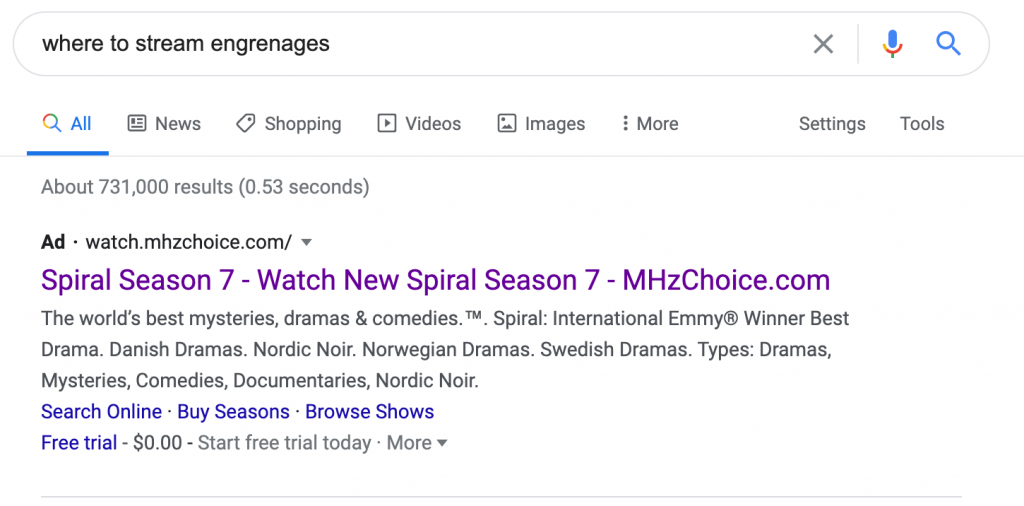
They “placed” themselves in their own store and “distributed” themselves via paid Google search ads.
This is important because distribution deals can be hard and take time. Advertising on Google search … well you can get going in like five minutes.
Their ad leads here:
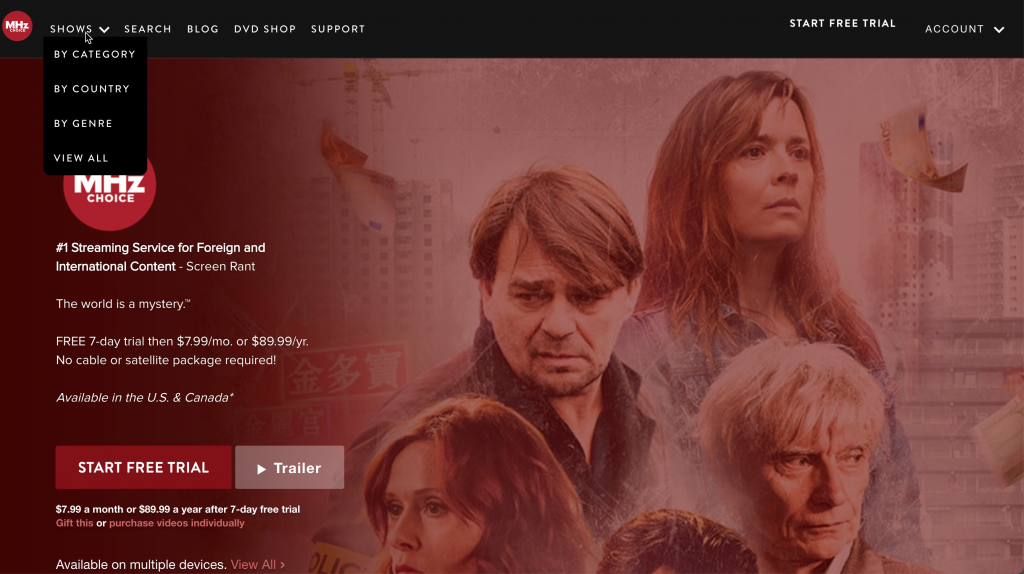
So advertising and distribution are kind of smooshed into one thing in this case.
MHz is smartly working all the major angles — Apple, Amazon, Google, and PR (note that New York Times piece—although that might have been pushed by the production company not MHz).
BTW I felt MHz fell down a bit when, after watching a couple episodes of Spiral (and only Spiral) they sent me this email.
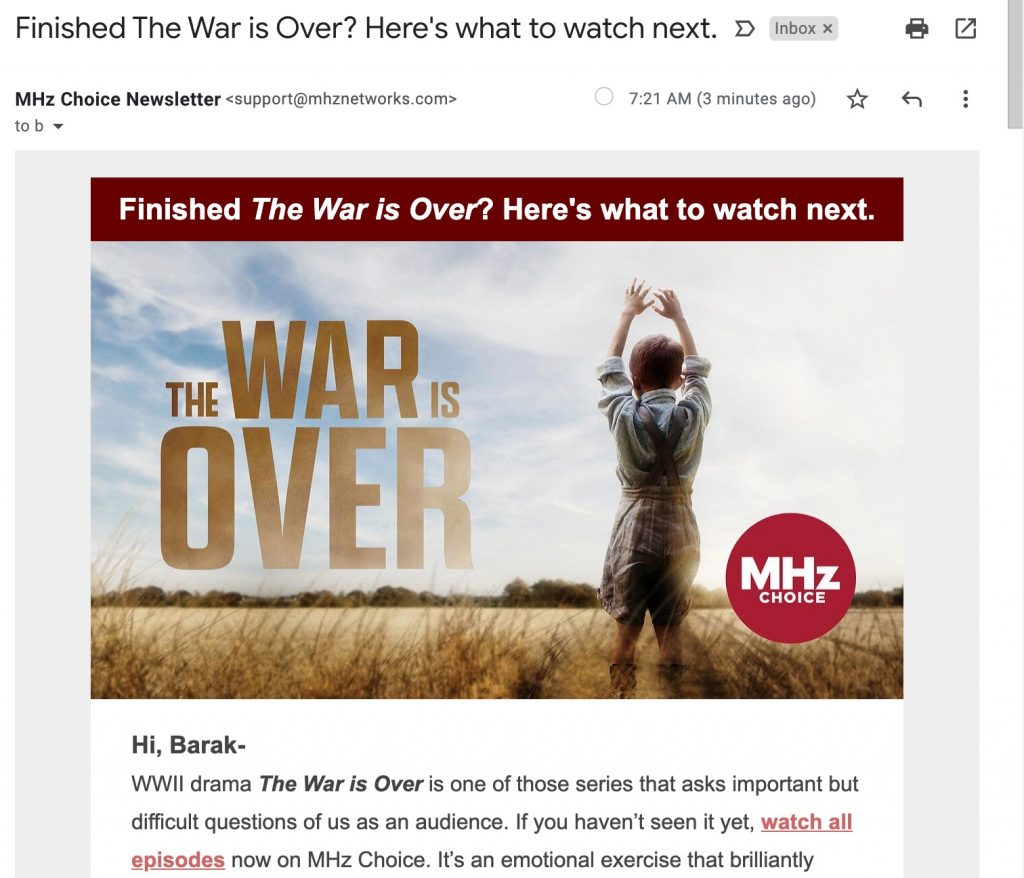
Not optimal at all — especially since they have me in a seven-day trial and they should be doing everything in their power to convert me into a paying, repeat customer. Asking if I’ve finished a show I have never heard of (when they know what I actually did watch — presumably) is not the way. But they have time to finesse this. They are getting the big things right. BTW this email reminded me of this Valentine’s Day email.
As it is, I’m not going to finish both remaining seasons during my seven-day trial, so they will get me for at least one month. Which ups the odds of keeping me a lot longer.
I hope you found this little journey interesting. I’m going to hit publish now but also plan to reach out to the MHz crew and see if someone there might be up for doing an interview with me about their perspective on this.
